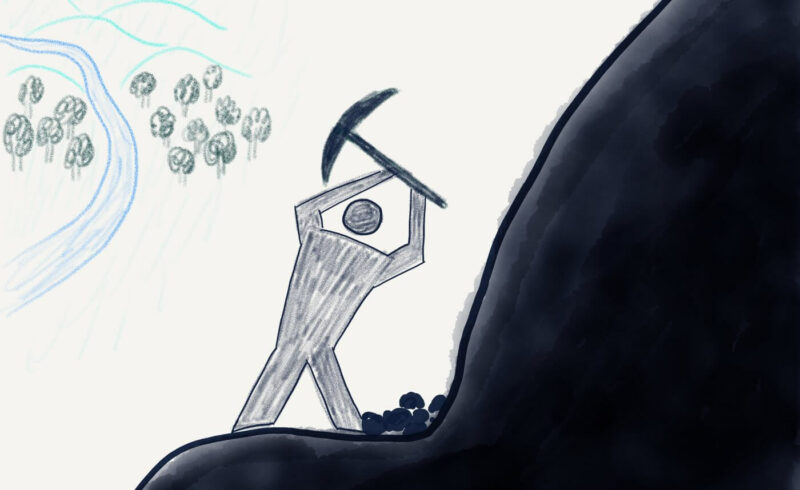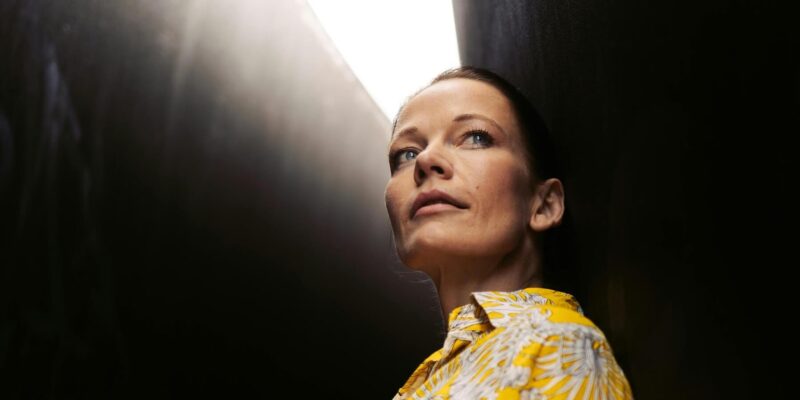Productivity problems that look like time management problems are usually energy management problems in disguise.
Take procrastination, for example. We don’t procrastinate because we lack time—if anything, the research suggests that having too much time makes it more likely that we procrastinate.
Instead, we usually end up procrastinating on our most important work because we’ve wasted our best energy on less important work. How often have you found yourself responding to email instead of drafting up a final report? Or cleaning your office instead of working on that watercolor painting you told yourself you were finally going to start? And by the time you finally do decide to get down to the really meaningful work, you’ve got nothing left in the tank…?
Technically, this is called precrastination—obsessively working on less important tasks as a way to avoid more important, if challenging, ones.
All that’s to say, being productive has much more to do with energy than time. Specifically…
It’s a lot easier to do your best work with your best energy.
So instead of trying to endlessly slice and dice your schedule according to newer and more complex time management tactics, focus on optimizing your energy instead.
Here are a few tips to get started…
1. Identify when you hit peak creative energy
Do you know when you tend to have peak creative energy?
Some people jump right out of bed ready to start working deeply and creating. Others don’t really get revved up until the late hours of the night. And some people have their best energy right after an early afternoon siesta.
It doesn’t really matter when your peak creative energy comes. What matters is that you understand when it comes and can optimize your work around that time.
If you’re not sure, take a few days or a week and track your energy levels over the course of the day.
Here’s how I’d do it:
- Get a piece of paper and create 5 columns labeled Mon-Fri.
- Under each column, list out the hours of your day.
- Keep this sheet on your desk or with you whenever possible.
- Each hour, make a note of how much energy you had on a scale of 1-10.
- After you’ve tracked it for a week, review and look for patterns.
2. Prioritize your work according to energy requirements
Responding to emails is important but it doesn’t take much creative energy most of the time. The same goes for cleaning my office, proofreading a draft, or sitting through most meetings. On the other hand, writing a first draft of a new article takes a lot of creative energy.
The point is that it’s important to be clear on which tasks require which kind of energy. Because if you’re not, it’s very easy to end up wasting your best, most creative energy on tasks that don’t need it and then having little leftover when the time comes.
If you already have a good sense for this, great. But if not, it’s really worth taking the time to:
- List out all the tasks you need/want to do on a regular basis.
- Categorize them according to whether they’re low, medium, or high energy tasks.
3. Schedule your work around maximizing creative energy
Once you understand when you have the best energy and what tasks require the most creative energy, you can plan your schedule around maximizing the overlap between those two.
For example:
- As a writer, the most energy-demanding activity I have is writing drafts of new articles. Because this activity requires a high level of focus and creativity, it’s very hard to do it well if I try to do it at the end of the day when most of my energy has been depleted by other tasks.
- But I also know this about myself: I don’t have peak creative energy immediately after waking up in the morning. It takes a good shower, a cup of coffee, and about an hour of being awake before I’m ready to really dive into some creative work.
- I also know through experience that this window doesn’t last forever: By mid-morning I’m definitely past my peak creative energy.
- Based on a clear understanding of the work I need to do and my own energy levels, I know that from 6:00 am to 8:00 am is the best creative writing time for me.
4. Guard your creative energy ruthlessly
Of course, even if you know what your most energy-demanding work is and when your peak creative energy is, that doesn’t mean it’s easy to align them—or rather, that doesn’t mean it’s easy to keep them aligned.
I’ve learned through experience that it’s all too easy to let things intrude upon my peak creative time…
- Someone wants to have me on their podcast but can only schedule me at 7:00 am my time
- A coworker in another time zone wants to have a meeting at 6:30 am my time
- A cool online workshop is happening one time only at 7:30 am my time
When you have something else important or exciting, it’s easy to rationalize why you should make an exception. And while there of course must be exceptions, you probably need to be more careful about this than you realize.
Exceptions tend to be slippery slopes: once you start making them it gets increasingly easy to keep making them.
And then you wake up one day thinking to yourself: Ugh… I haven’t done any significant creative work in weeks/months/years!
5. Get used to saying “no” by reminding yourself of your values
FOMO is a thing. It’s hard to disappoint people. And it’s painful to give up exciting opportunities.
And that’s a big part of why we all struggle so much to set boundaries and say no. It’s hard because there are very real downsides to saying no and being ruthless about protecting your most creative time and work.
In fact, I think it’s nearly impossible to consistently set healthy boundaries around your creative work unless you make it a deliberate practice to remind yourself of your core values—the things that really matter most to you.
For example:
- It’s very hard to say no to a one-time opportunity to hear Dr. So-and-So give an online lecture about Topic-X-Y-Z that you’re super interested in. But it’s a little bit easier if you take the time to remind yourself of what you would be giving up if you did: I don’t want to be like all those other people I know who call themselves writers but don’t really produce anything. Writing is my passion. It’s what I love doing. And I know that doing what I love takes hard commitments, including sometimes saying no. At the end of the day, being a writer is more important to me than attending this lecture. So I’m going to say no.
- It’s so hard to say no to your boss who wants you to take on this new project. She’s so nice and has been so supportive of you. And it really does sound like a cool project. But it’s a little bit easier if you remind yourself of what’s most important: I’ve committed to Project X being my primary focus. It’s difficult, yes, but it’s the thing I’m uniquely suited to do. Getting to work on something new and shiny is exciting. But at the end of the day, I want to really move the needle and help the company grow. Also, it’s important to me that I do the best work I’m capable of. I want Project X to be A+ work, not A- work because I allowed myself to be distracted. I know my boss will be initially disappointed that I say no, but I trust that in the long run she’ll understand.
Protecting your creative energy is harder than it seems.
And it’s arguably too hard to do consistently unless you tap into the power of your values by regularly reminding yourself of the whys behind your most important whats.
Final Thought: Work as a function of energy, not time
Here’s a final way to think about the importance of managing your energy:
The returns on highly-focused creative time are exponentially higher than every other time.
Quick example to illustrate:
- I can write an entire first draft for a new article in 90 minutes if I do it at 6:00 am.
- But if I could only write article drafts after 3:00 pm, it would take me 7-10 hours per draft because my energy, focus, and creativity are just so much lower then.
This is why it’s so important to see work as a function of energy, not just time: the output on two hours of low-energy work pales in comparison to that of two hours of high-energy work. It’s an hours to energy comparison!
Of course, I understand that real life happens. And for all sorts of reasons, we can’t always control all our work as well as we’d like.
Still, to the extent that you can given your circumstances, think about your work—especially your creative work—through the lens of energy, not just time.





8 Comments
Add YoursI enjoyed the article. It was interesting b/c it was a completely
different viewpoint from my thoughts.
Thank you! Gould not be more true! The challenge is as you described: knowing the energy levels, considering and planning around them and learning to be clear in saying ‚no‘.
I couldn’t agree more. I am very grateful for the articles you write. They are very helpful. I was thinking on how to extrapolate the energy management strategy to other fields, specially those intended to improve lifestyle, spiritual side of life, creating better habits of thought and action.
love your articles, truly one of the best things to happen to me during the pandemic is subscribing to your mailing list. appreciate your help so much!
Thank you for this great breakdown of utilizing the energy you already have to work smarter not harder.
So much useful advice here. Confirms also that I am def not a morning person!
Setting out clear goals and values and then protecting them has changed my approach and thinking hugely. Your articles then explain clearly how to do this. I re-read them as so useful to me. Many thanks for all you freely share Nick.
This was very useful, I do definitely have peak energy periods and I try and do the harder pieces of work then. When I have no energy left I go for a walk and I get some back to then carry on until I close down for the day. I will track the energy as you suggest though as it seems to be changing patterns at the moment.